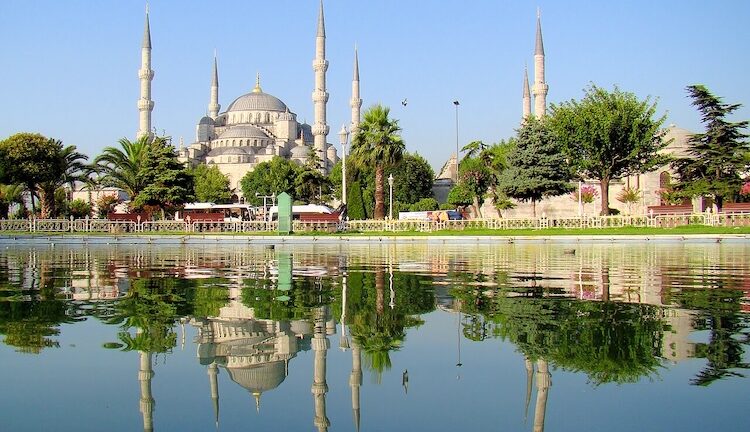By Jonathan Power*
LUND, Sweden | 23 September 2025 (IDN) — The words still ring in policy-makers’ ears from Harvard Professor Samuel Huntington’s famous treatise, The Clash of Civilizations. This book, in many ways, triggered the paranoia that has infected politicians, the press, and public discourse. “The underlying problem for the West is not Islamic fundamentalism, IT IS ISLAM,” he wrote (his capitals).
Too few in the Western leadership class make the obvious point that Al-Qaeda is a deviant phenomenon within the Islamic world, just as Hitler was a deviant phenomenon within the Christian world. (Commentators often overlook Hitler’s early speeches invoking Catholic principles, or the tens of millions of church-goers who supported him.) Yet Islam has a much better record over the ages—despite its founder being more warlike than Christianity’s—of dealing with its deviants who resort to excessive violence.
Islamic culture has never been tolerant of Nazism, fascism, Marxism, or communism. Christian society (and, in Marx’s case, Jewish society) has given rise to all four. Buddhism failed to resist the influence of Japanese militarism, and Confucianism proved hospitable to Maoism. Yes, there were Idi Amin and Saddam Hussein, but they were atheistic brutes without a religious ideology.
Selective Memory and Double Standards
There have been violent episodes in Islam’s history—the Armenian massacres and starvation under Ottoman Turkey in 1915 remain a source of bitter debate. But Islam has never spawned anything comparable to Hitler’s systematic genocide of the Jews. Indeed, throughout its history, Islam has been protective of Jews, regarding them as “people of the Book,” with whom it had a special responsibility. Nor has it systematically obliterated other civilisations, as Christian Spain did with the Aztecs and Incas. Its conquest of the Persian Empire did not create anything equivalent to South Africa’s apartheid or the racist culture of the old American South. Unlike many Christian churches, the mosque has never separated people by race. Even today, Americans sometimes confess that nowhere is there more segregation in their society than at Sunday noon hour.
Western memories are highly selective. At Easter in the 1820s, Greek peasants in the Peloponnese killed Muslims en masse—there was silence. Fifty years later, mass killings of Christians in Bulgaria unleashed a wave of outrage. The French painter Delacroix immortalised it in his canvas The Massacre at Chios, showing Christian women pursued by Turkish lancers. Gladstone wrote a best-selling pamphlet, declaring the Ottomans left “a broad line of blood marking the track behind them, and as far as their domination reached, civilisation vanished from view.”
Yet forgotten today is that the Ottomans gave refuge to Jews expelled from Iberia, as well as to German, French, and Czech Protestants. However, most well-read Westerners are still familiar with Voltaire’s “Fanaticism,” or Mahomet the Prophet, or Dante’s placement of Mohammed in Hell.
Islam’s Record Compared to the West
Christianity, apart from its earliest years, has always been dominated by Europeans. The leadership of the Muslim world has been more fragmented, with notable examples including the Arab Umayyads (661–750), the multi-ethnic Abbasids (750–1258), the Turkish Ottomans (1453–1922), the Mughals in India, the Safavids in Persia, and the Muslim empires of Mali and Songhai in Africa.
Despite relative poverty today, Muslim societies remain comparatively safe. Cities like Cairo, Dhaka, Jakarta, and Dubai have far lower rates of violent crime than Christian-influenced societies. According to the UN Human Development Report, Muslim countries record the world’s lowest murder and rape rates. In Tehran, you can find families with children picnicking in city parks at midnight. When my daughters’ friends ask where they can safely travel alone, I answer: non-Christian Calcutta and Muslim Tunis—certainly not Catholic Rio de Janeiro or Protestant Cape Town. In Muslim societies, murders, muggings, prostitution, and drug use are far rarer.
Not least, while weighing the scales, we should recall that, by the U.S. Justice Department’s account, more terrorist incidents are caused by white Americans than foreigners—despite what President Donald Trump suggested this week.
Fear, Guns, and the Politics of Ignorance
Meanwhile, the U.S. moves ever closer to a martial culture. Thirteen million Americans hold concealed-carry permits—twelve times the number of police officers. The al-Qaeda attacks proved a windfall for the gun lobby. After years of declining crime rates and gun sales, 9/11 triggered a surge in firearm buying. Yet the risk of an American dying in a terrorist attack was—and remains—infinitesimal.
Perceptions are badly skewed. In one poll, Americans guessed that one in six of their fellow citizens was Muslim; the real number is one in 100. The National Rifle Association exploits such fears. Gun companies now market weapons not for deer or duck hunting, but by suggesting anyone could be a Navy SEAL with a super-powerful gun in hand.
The Western debate about Islam is frankly uninformed, even infantile. In France, the UK, Germany, and Sweden, it has gone overboard. Right-wing political parties profit from such fears, risking the very fabric of Western civilisation. Even Barack Obama—who surely knew better—appeared reluctant to challenge such views. His remarks at the 9/11 commemoration were anodyne. Rarely does a Western politician genuinely attempt to educate public opinion. Instead, we remain mired in a slough of ignorance.
*Jonathan Power has been an international foreign affairs columnist for over 40 years and a columnist and commentator for the International Herald Tribune (now the New York Times) for 17 years. [IDN-InDepthNews]
Copyright © Jonathan Power
Visit www.jonathanpowerjournalist.com
Image: Blue Mosque, Istanbul, Mirrored by Bjørn Christian Tørrissen, via Wikimedia Commons, licensed under CC BY-SA 3.0.

